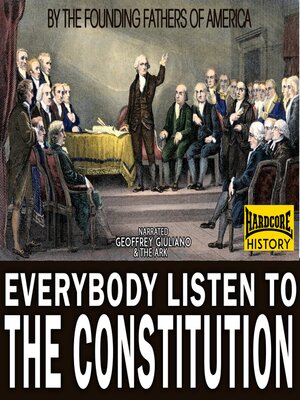
Sign up to save your library
With an OverDrive account, you can save your favorite libraries for at-a-glance information about availability. Find out more about OverDrive accounts.
Find this title in Libby, the library reading app by OverDrive.



Search for a digital library with this title
Title found at these libraries:
| Library Name | Distance |
|---|---|
| Loading... |
The Constitution of the United States is the supreme law of the United States of America. It superseded the Articles of Confederation, the nation's first constitution, in 1789. Originally comprising seven articles, it delineates the national frame of government. Its first three articles embody the doctrine of the separation of powers, whereby the federal government is divided into three branches: the legislative, consisting of the bicameral Congress (Article I); the executive, consisting of the president and subordinate officers (Article II); and the judicial, consisting of the Supreme Court and other federal courts (Article III). Article IV, Article V, and Article VI embody concepts of federalism, describing the rights and responsibilities of state governments, the states in relationship to the federal government, and the shared process of a constitutional amendment. Article VII establishes the procedure subsequently used by the 13 states to ratify it. It is regarded as the oldest written and codified national constitution in force.
Since the Constitution came into force in 1789, it has been amended 27 times, including one amendment that repealed a previous one, in order to meet the needs of a nation that has profoundly changed since the 18th century. In general, the first ten amendments, known collectively as the Bill of Rights, offer specific protections of individual liberty and justice and place restrictions on the powers of government within the U.S. states. The majority of the 17 later amendments expand individual civil rights protections. Others address issues related to federal authority or modify government processes and procedures. Amendments to the United States Constitution, unlike ones made to many constitutions worldwide, are appended to the document. The original U.S. Constitution was written on five pages of parchment.







